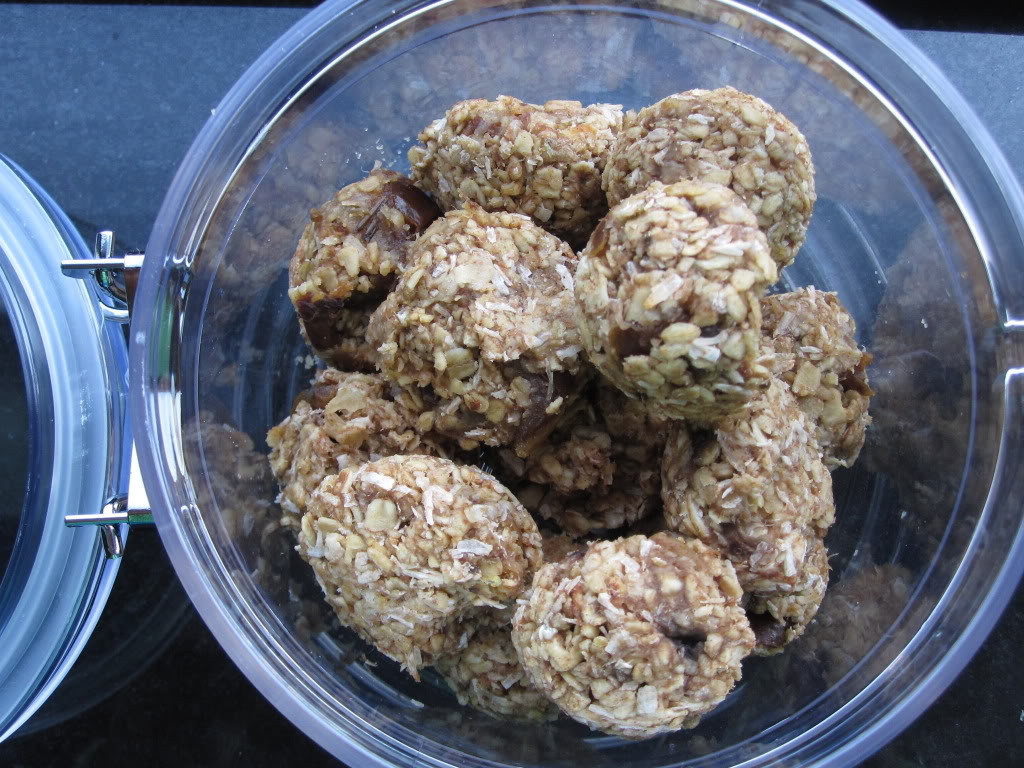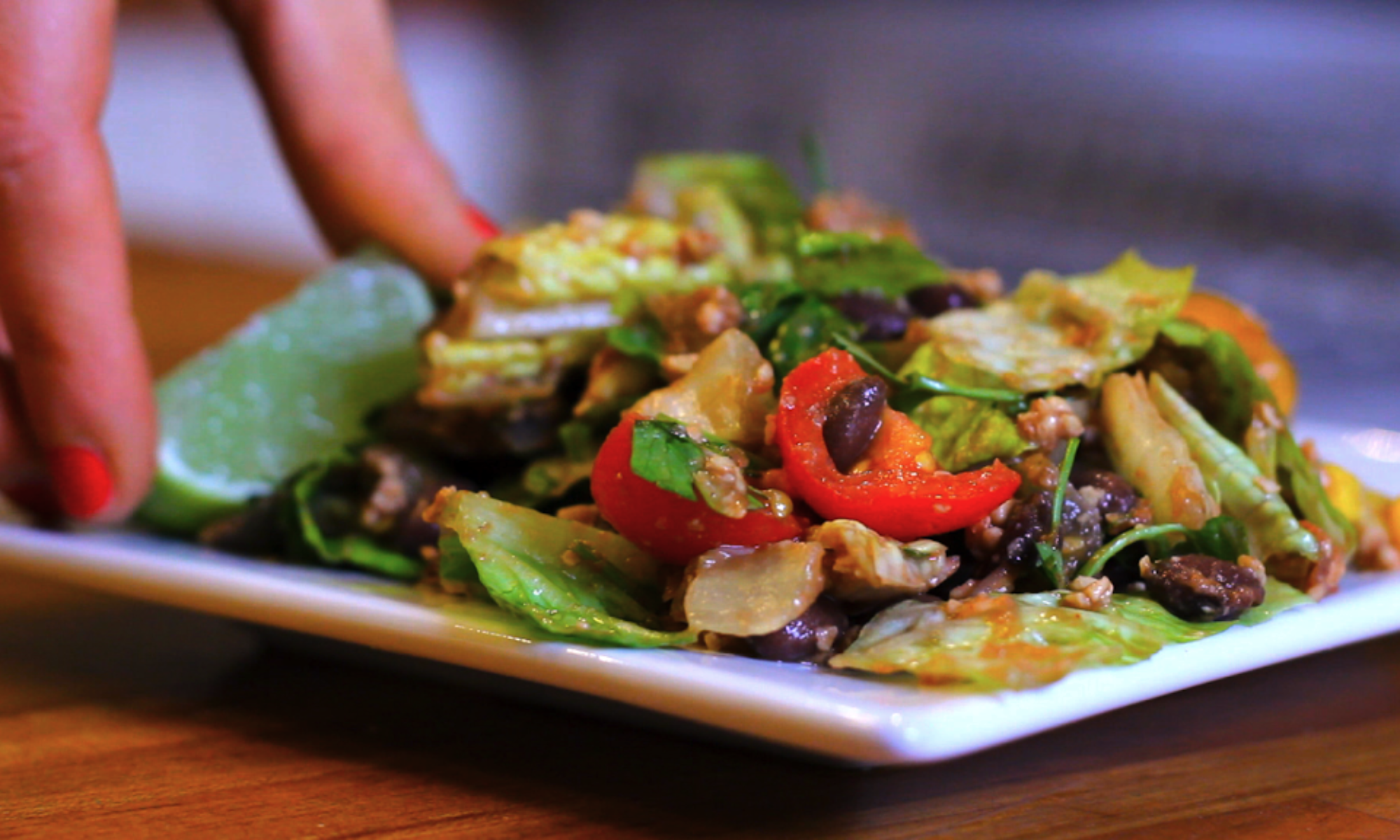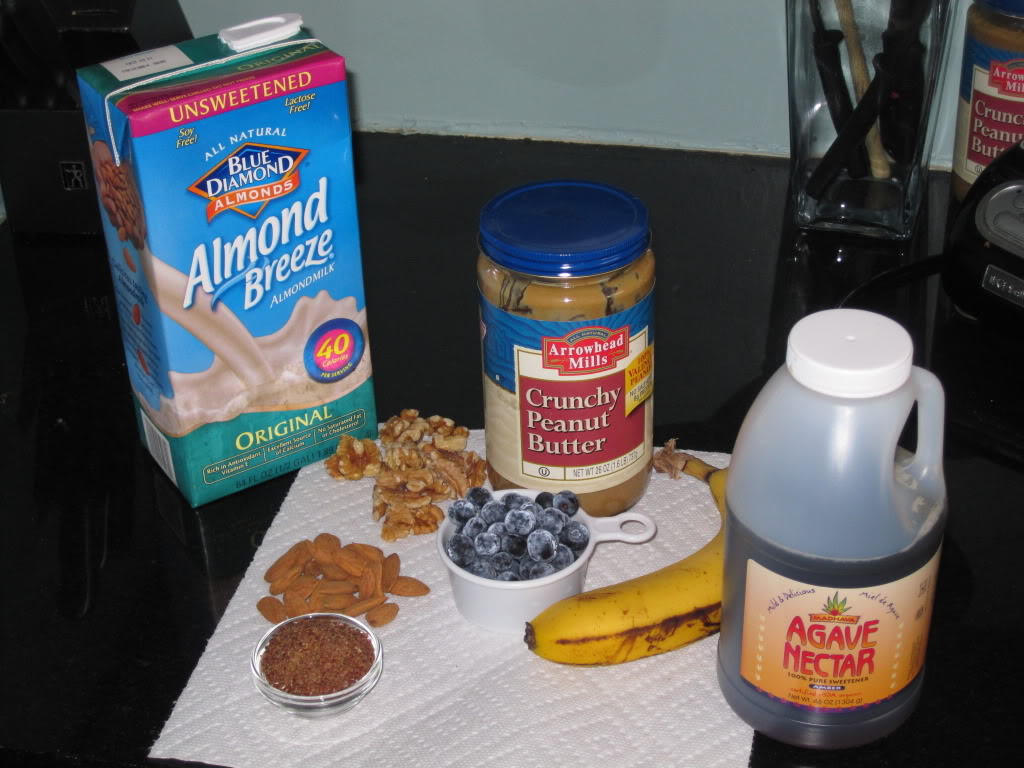
These cookies have no added sugar, but you’d never know it because the dates and bananas provide just the right amount of sweetness. They make for a healthy option for a snack, breakfast on the go, or dessert. I show you how to make them oil-free as well 🙂
Ingredients:
3 large ripe bananas
1 teaspoon pure vanilla extract
1/4 cup canola oil (for an oil-free option use 1/4 cup unsweetened apple sauce instead)
2 cups rolled or quick-cooking oats
1/3 cup unsweetened shredded coconut
1/2 teaspoon ground cinnamon (More if you like cinnamon a lot. Sometimes I do 1 tsp.)
1/2 teaspoon salt
1 teaspoon baking powder
6 or 7 large dates, chopped
Instructions:
1. Preheat the oven to 350 degrees. Coat a baking pan with canola oil or line with parchment paper.
2. In a large bowl, mash the bananas with a fork until smooth.
3. Add the vanilla, canola/apple sauce, oats, coconut, cinnamon, salt, and baking powder and mix with your hands or a fork until fully combined.
4. Fold in the chopped dates.
5. Using a tablespoon spoon (is that what it’s called?) scoop out heaping dollops of the dough onto the baking pan. You could also use your hands but I thought the round shape created by the tablespoon spoon was really cute. (Note: The cookies wont spread very much so they can be placed closely together.)
6. Bake for 15 minutes or until the cookies are golden brown on the bottom. Depending on your oven, it could take up to 30 minutes.
Source: This is an oil-free version of a recipe in “Color Me Vegan” by Colleen Patrick-Goudreau

